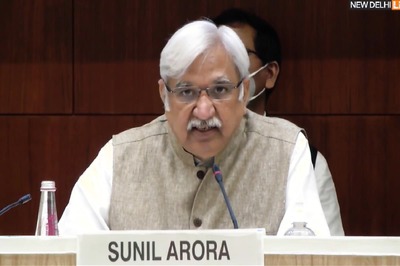
views
The Gujarat High Court (HC) has issued an interim order to halt the release/ streaming of the film, ‘Maharaj’, the debut of actor Aamir Khan’s son, Junaid. The movie, produced by Yashraj Films, which was set to premiere on Netflix on Friday, will not be released until further notice.
Justice Sangeetha K Vishen issued the ad-interim order on June 13, in response to concerns raised by devotees of the Pustimargi sect and followers of Bhagwan Shree Krishna. The court directed that notices be sent to Yashraj Films, Netflix India and other involved parties. The court stated: “Considered the submissions. Issue notice to the respondents, returnable on June 18, 2024. Ad-interim relief is granted in terms of paragraph 11(C), till the next date of hearing.”
The petitioners argued that the movie could disturb public order and incite violence against their sect and the Hindu religion. It was contended that the release of the film “would be in breach of code of ethics under the Information Technology (Intermediary Guidelines and Digital Media Ethics Code) Rules, 2021 (hereinafter referred to as the ‘Rules of 2021’) and the Self- regulation Code of Over the Top Technology (OTT).”
The petitioners, represented by Senior Advocate Mihir H Joshi, argued that the film is based on the ‘Libel Case of 1862’, a historic case judged by English judges. The petitioners contended that the film contains scandalous and defamatory language that maligns the Pustimargi sect and Hinduism as a whole. The petitioners further said the film’s release was being managed in secrecy, with no trailers or promotional events, leading to a heightened concern about its content being controversial. They expressed fears that “once the movie is released, irreversible situation will be created, rendering it impossible to mend the damage caused to the sect,” highlighting the extensive reach of OTT platforms.
The petitioners pointed out the refusal of a private screening. Despite making urgent appeals to the Ministry of Information & Broadcasting to block the film, they alleged to have received no response.
The petitioners invoked the Information Technology Act, 2000, and the Rules of 2021, specifically citing Rule 16 and Section 69A, which provide for blocking content that could disrupt public order.
The court will reconvene to hear further arguments on the matter on June 18.




















Comments
0 comment